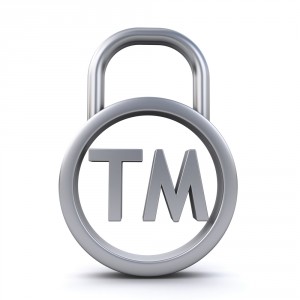 A consumer Apple iPhone class-action antitrust lawsuit (read it below) accuses the Cupertino, California, company of conspiring to monopolize early iPhone purchasers’ voice and data plans by locking them into exclusivity contracts with AT&T Mobility, in violation of federal antitrust law.
A consumer Apple iPhone class-action antitrust lawsuit (read it below) accuses the Cupertino, California, company of conspiring to monopolize early iPhone purchasers’ voice and data plans by locking them into exclusivity contracts with AT&T Mobility, in violation of federal antitrust law.
The proposed class of plaintiffs includes consumers who bought iPhones between October 19, 2008, and February 3, 2011. This corresponds to the period of time when Apple sold three versions of the company’s iPhone: the original, 3G, and 3Gs models.
The plaintiffs are asking for a permanent injunction prohibiting Apple from selling locked iPhones that can be be used only with AT&T Mobility SIM cards, unless consumers get adequate disclosure before their purchase, and an order requiring Apple to give an unlock code to any iPhone customer who wants one.
Plaintiffs Zack Ward and Thomas Buchar also seek an unspecified amount of treble damages against Apple under federal law, in addition to attorneys fees. Apple is the sole defendant in the lawsuit; neither AT&T Mobility, nor any related business units at the telecom was named a party.
The suit alleges that Ward and Buchard each wanted to switch their iPhone plans from AT&T to a different, competing telecom provider. Buchar also contends that by locking iPhone customers’ SIM cards when traveling outside the U.S., he was unable “to switch his iPhone service to a local voice and data service provider while roaming.”
The lawsuit chastises AT&T for unlocking SIM cards on other phones it sells, like Blackberry and Samsung devices, and claims that “[t]here is but one exception: the iPhone,” citing a five-year exclusivity agreement between Apple and AT&T Mobility.
This case has a quite a few hurdles to overcome, however.

 Burns v. Astrue
Burns v. Astrue Yesterday Facebook and Mark Zuckerberg scored a huge win against Paul Ceglia, the plaintiff claiming 50% ownership of the social media company, but whose allegations the defendants have consistently maintained are based upon a fraudulent work for hire document.
Yesterday Facebook and Mark Zuckerberg scored a huge win against Paul Ceglia, the plaintiff claiming 50% ownership of the social media company, but whose allegations the defendants have consistently maintained are based upon a fraudulent work for hire document. A heads up to all our Free Law Friends that next week is the 6th annual Open Access Week (October 22 – 28). Appropriately, it will be celebrated “everywhere”. Check out the
A heads up to all our Free Law Friends that next week is the 6th annual Open Access Week (October 22 – 28). Appropriately, it will be celebrated “everywhere”. Check out the  Evolutionary Intelligence, LLC sued
Evolutionary Intelligence, LLC sued  Why would a defendant litigate over four and a half years, finish conducting discovery, tell a court that it’s ready for trial, and then – only then – ask a plaintiff to admit that he posted photographs on Facebook and other social media sites?
Why would a defendant litigate over four and a half years, finish conducting discovery, tell a court that it’s ready for trial, and then – only then – ask a plaintiff to admit that he posted photographs on Facebook and other social media sites? The European Union (EU) is expected to announce legal action against
The European Union (EU) is expected to announce legal action against  For several months, Facebook has
For several months, Facebook has  Apple, Inc. was hit with a patent infringement lawsuit Thursday (read it below) alleging that the company’s iPad 3 tablets and Macbook Pro computers violate four light emitting diode (LED) patents. The case was filed in in federal court in Delaware by claimed patent holder LED Tech Development LLC, a Delaware limited liability company based in Tyler, Texas, the city that is a patent litigator’s
Apple, Inc. was hit with a patent infringement lawsuit Thursday (read it below) alleging that the company’s iPad 3 tablets and Macbook Pro computers violate four light emitting diode (LED) patents. The case was filed in in federal court in Delaware by claimed patent holder LED Tech Development LLC, a Delaware limited liability company based in Tyler, Texas, the city that is a patent litigator’s  Dept of Texas, Veterans of Foreign Wars v. Texas Lottery Commission
Dept of Texas, Veterans of Foreign Wars v. Texas Lottery Commission